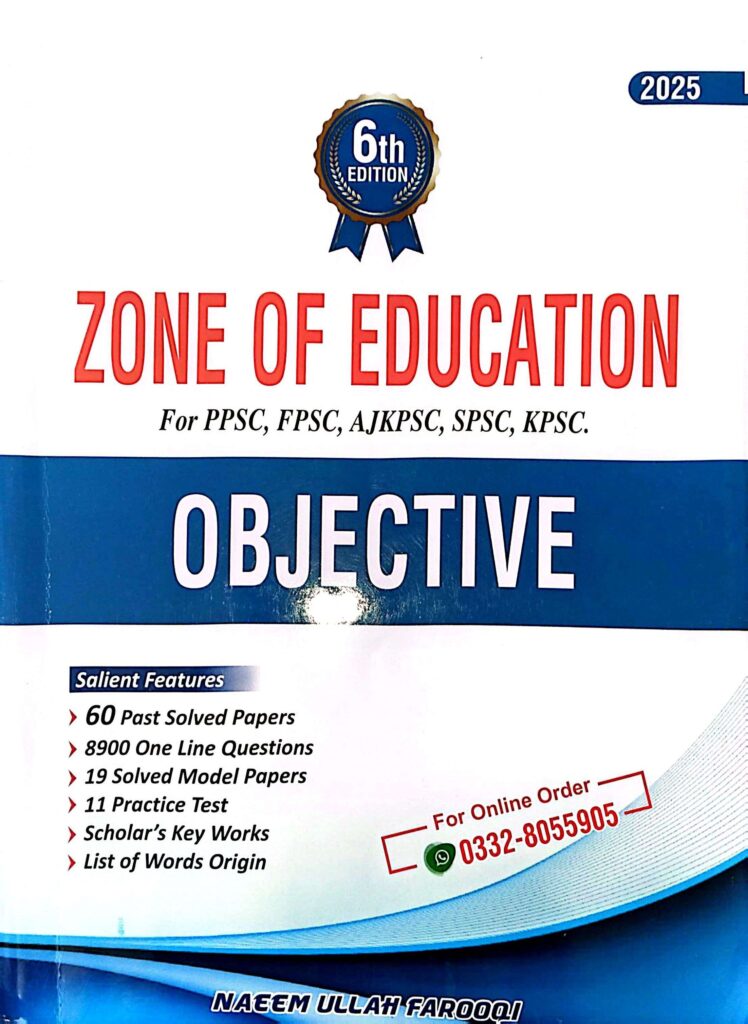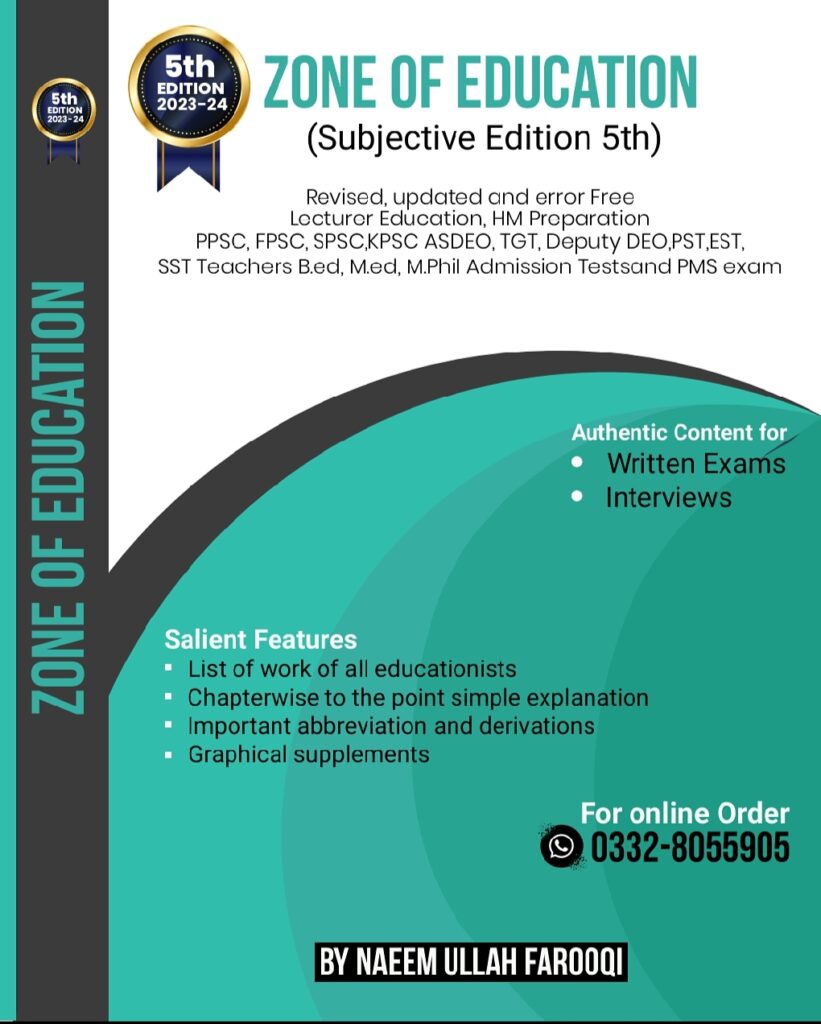Classroom Management
.The technique of “fading” involves:
a) Ignoring behavior altogether
b) Moving around the classroom
c) Gradually withdrawing a prompt
d) Using non-verbal cuing
32. The “Indulgent” classroom management style focuses on:
a) Encouraging independence
b) Establishing strict rules
c) Actively supporting students’ learning choices
d) Using threats and physical force
33. Which approach focuses on students experiencing the natural outcomes of their actions?
a) Authoritarian
b) Logical Consequences
c) Authoritative
d) Permissive
34. The technique of “environmental control” involves:
a) Isolating students from the situation
b) Using rewards and punishments
c) Creating an inclusive and conducive classroom environment
d) Gradually withdrawing prompts
35. The main theme focused by Doyle in classroom management is:
a) Teacher-student communication
b) Misbehavior
c) Positive behavior
d) Lesson planning
36. Classroom problems include all except:
a) Lack of Engagement
b) Large Class Sizes
c) Positive Behavior Interventions and Supports (PBIS)
d) Technology Issues
37. “Token Economy” is a behavior modification technique based on:
a) Ignoring behavior
b) Providing rewards for positive behavior
c) Punishing negative behavior
d) Moving around the classroom
38. Which technique focuses on creating a cooperative learning environment through effective communication?
a) Assertive Discipline
b) Logical Consequences
c) Ginott Model
d) Jacob Kounin’s model
39. The “Canter’s Behavior Management Cycle” involves:
a) Isolating students from the situation
b) Gradually withdrawing prompts
c) Issuing warnings and consequences
d) Encouraging independence
40. Which dimension of classroom management focuses on the direct link between activities and learning?
a) Activity
b) Climate
c) Time
d) Space
Part 02
1. Corporal punishment involves:
a) Rewarding students for good behavior
b) Using physical pain to change behavior
c) Ignoring student behavior
d) Encouraging positive emotions in students
2. What does the Pygmalion effect refer to?
a) Using physical punishment to control students
b) Higher expectations leading to improved performance
c) Ignoring students’ potential
d) Encouraging rebellion in students
3. Dropout refers to:
a) Students transferring to other schools
b) Students leaving school before completing the academic session
c) Students receiving extra support
d) Students participating in co-curricular activities
4. The total categories of Flanders Interaction Analysis Categories System include:
a) 3 categories
b) 4 categories
c) 7 categories
d) 10 categories
5. What is the main purpose of the “Dos” in Classroom Management?
a) Punishing misbehaving students
b) Providing vague rules
c) Ensuring match between students’ skills and instructional level
d) Ignoring students’ progress
6. Which category is not part of Flanders’ Teacher Talk?
a) Indirect Talk
b) Direct Talk
c) Pupil Talk
d) None
7. The Pygmalion effect can result in:
a) Decreased expectations leading to improved performance
b) Students avoiding teacher interactions
c) Improved performance with low expectations
d) Negative impact on teacher-student rapport
8. How is bullying defined?
a) Positive interaction between students
b) Targeting and harming another individual through power or influence
c) Fostering inclusivity and acceptance
d) Promoting assertive behavior
9. Gross Enrollment Rate (GER) is calculated by:
a) Dividing total students enrolled by total population
b) Dividing enrolled students by official school age population
c) Dividing total population by enrolled students
d) Dividing official school age population by total students
10. Which type of bullying involves social exclusion or damaging reputation?
a) Direct Bullying
b) Indirect Bullying
c) Physical Bullying
d) Verbal Bullying
11. What do “Don’ts” in Classroom Management include?
a) Using corporal punishment
b) Setting clear behavior expectations
c) Ignoring students’ progress
d) Encouraging open communication
12. A conducive learning environment promotes:
a) Bullying and corporal punishment
b) Student rebellion
c) Positive teaching and learning interactions
d) Silence and confusion in the classroom
13. What does the term “Retreat” refer to in the context of punishment?
a) Seeking revenge
b) Avoiding teachers
c) Rebelling against authority
d) Engaging in positive behavior
14. What is the main goal of “Bullying Prevention” strategies?
a) Encouraging verbal and physical aggression
b) Establishing clear behavior expectations
c) Fostering inclusivity and acceptance
d) Promoting bystander participation
15. The term “Truancy” refers to:
a) Student absenteeism without good reason
b) Participating in co-curricular activities
c) Positive behavior reinforcement
d) Creating a safe learning environment
16. “Dos in Classroom Management” primarily target:
a) Students who perform well academically
b) Creating a vague set of rules
c) Ignoring students’ skills and needs
d) Students’ engagement and progress
17. What is the purpose of “Rules” in the classroom?
a) Ignoring students’ behavior
b) Creating chaos and confusion
c) Setting clear boundaries and standards of conduct
d) Promoting bullying behavior
18. Which type of bullying involves physical aggression?
a) Indirect Bullying
b) Direct Bullying
c) Emotional Bullying
d) Cyberbullying
19. How can bullying be prevented?
a) Encouraging conflict resolution skills
b) Ignoring behavior and violating rules
c) ignoring a hostile classroom environment
d) Establishing vague behavior expectations
20. What is the focus of “Routines” in classroom management?
a) Providing a structured approach to classroom tasks and transitions
b) Encouraging chaos and unpredictability
c) Promoting corporal punishment
d) Ignoring students’ skills and needs
JOIN ZONE OF EDUCATIONPK!
Discover the most comprehensive and reliable pedagogy resources in Pakistan, curated for competitive exam success. Our content covers all competitive exam MCQs, including PPSC, FPSC, AJKPSC, SPSC, and more. Designed to empower learners with top-notch material and insights, trust us for your preparation journey!


